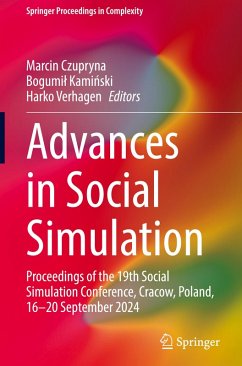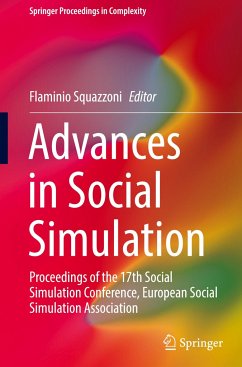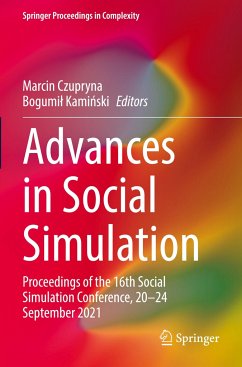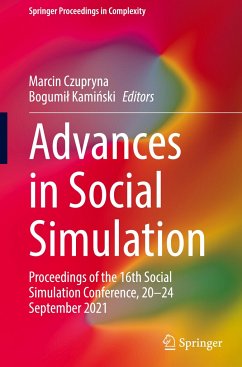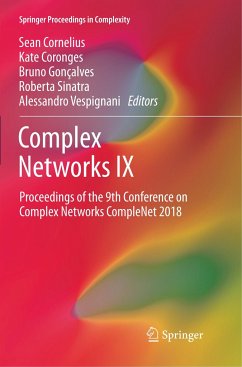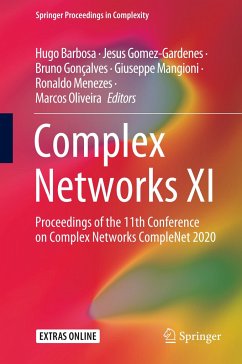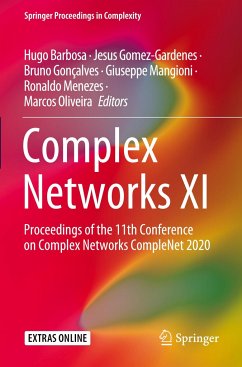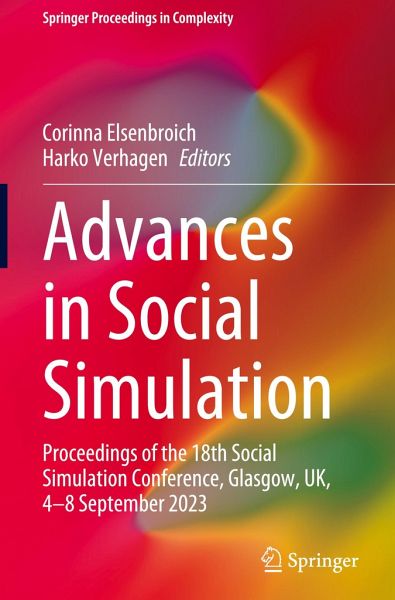
Advances in Social Simulation
Proceedings of the 18th Social Simulation Conference, Glasgow, UK, 4-8 September 2023
Herausgegeben: Elsenbroich, Corinna; Verhagen, Harko

PAYBACK Punkte
76 °P sammeln!
This book contains the proceedings of the 18th Social Simulation Conference (SSC) and covers the state of the art of social simulation modeling. The SSC is the annual conference of the European Social Simulation Association (ESSA) and the major global conference devoted to this topic. It is aimed at promoting social simulation and computational social science. The book is the biggest collection of agent-based modeling research. It covers all aspects of modeling, from theory and philosophy of modeling to question of model design, purpose, and structure, using data, visualization, model interrel...
This book contains the proceedings of the 18th Social Simulation Conference (SSC) and covers the state of the art of social simulation modeling. The SSC is the annual conference of the European Social Simulation Association (ESSA) and the major global conference devoted to this topic. It is aimed at promoting social simulation and computational social science. The book is the biggest collection of agent-based modeling research. It covers all aspects of modeling, from theory and philosophy of modeling to question of model design, purpose, and structure, using data, visualization, model interrelation, and open modeling.
This book is targeted at researchers in social simulation regardless of disciplinary backgrounds, across career stages and different sectors, such as academia, industry, and policy
This book is targeted at researchers in social simulation regardless of disciplinary backgrounds, across career stages and different sectors, such as academia, industry, and policy




